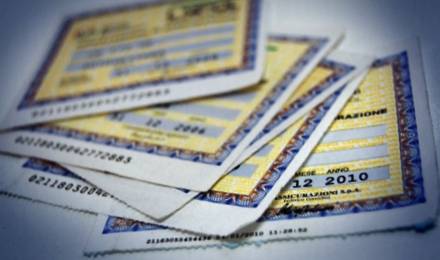Car insurance: who doesn’t like direct compensation and why

The Competition Bill provides for the generalized extension of direct insurance compensation for car insurance. A rule introduced in 2007 by the Bersani Decree but so far little applied, which is raising criticism. All the details
All against direct auto insurance compensation. A few days have passed since the dismissal of the Competition Law by the Council of Ministers and the tussle over the provision contained therein is already causing strong disputes. A rule that in the declared intentions should speed up the time necessary to settle the damage suffered by those who are not at fault in the accident, which however meets the opposition of those who complain of higher costs for consumers and undue advantages for insurance companies. The law is now awaited for consideration by the House and Senate and many are asking for a review of Article 27 which imposes the obligation of direct compensation to all insurance companies, including those based abroad that up to now could choose voluntarily whether to join or not.
HOW IT WORKS AND WHAT IS THE CARD
To understand the reasons of those who criticize the law, it is necessary to take a step back and explain the ter that led the government to extend its implementation. The indemnity or direct compensation was born on 1 February 2007 following the Bersani Decree and provides that, if the insurance company adheres to the Convention between Insurers for Direct Compensation (CARD) and in certain cases of no-fault accident, it is possible to request the compensation for damage directly to your company. If a specific compensation clause is added to a third party liability policy, the damaged policyholder, in addition to compensation for pecuniary damage, can ask the insurance company to restore the correct functionality of the vehicle and therefore eliminate the damage. The two insurances will then settle the accounts through a lump sum reimbursement
WHEN DIRECT COMPENSATION APPLIES
Direct compensation applies to vehicles registered and insured in Italy, the Vatican City and the Republic of San Marino. In order for it to be requested by the injured party, it must involve no more than two vehicles, beyond this limit it is necessary to proceed with the ordinary compensation. The claim must take place in Italy, the Republic of San Marino or the Vatican City and both insurance companies (that of the injured party and that of the injured party) must have adhered to the CARD. In the event that the injured party is at fault, if the accident occurs outside the Italian territory and in all cases not provided for by the agreement, it is necessary to contact the company of the counterpart at fault.
CONSUMER MOVEMENT: "CRITICALITIES IN TERMS OF ANTI-COMPETITION"
So far the functioning of direct compensation, from several fronts, however, comes criticism and appeals to Parliament to change the rule that generalizes it. According to the Consumer Movement, the hypothesis of extending the obligation to adhere to the direct compensation system to all insurance companies intending to operate in Italy presents serious problems in terms of anti-competition and abuse of a dominant position. This procedure creates a series of distortions already reported on various occasions by MC, but the extension of the obligation to adhere to direct compensation would aggravate the current situation of oligopoly – just think that the top five Italian insurance companies hold most of the market national, almost 70% – making it even more stringent than it already is. According to Sonia Monteleone, Head of Insurance MC: “The first effect that would weigh the most on consumers would be the increase in the cost of the policy premium; not to mention the uncontrolled proliferation of clauses irrelevant to the subject of the Motor TPL contract which provide for illegitimate reductions on the amount of compensation which must always remain integral ".
ASSOUTENTI: "NO MORE GIFTS TO THE INSURANCE COMPANIES"
Another voice against the rise is that of Assoutenti. "The insurance market, with the pandemic, has benefited from a strong reduction in claims and costs, consolidating its non-competitive and oligopolistic structure, maturing, in the motor liability sector alone, a world record in profits" – declares Furio Truzzi, national president of Assoutenti, adding that "direct compensation should not be extended to so-called foreign companies but completely abolished by returning simple motor liability insurance policies to policyholders, the restoration of a healthy bonus malus mechanism, the full right to the free choice of the trusted repairer as established by competition law approved in 2017 constantly circumvented by insurance companies ". "At the same time as the abolition of direct compensation" – claims Truzzi – "the provision on the portability of insurance certificates must be introduced immediately, which would allow greater mobility of policies and the purification of contracts from vexatious and complex clauses that compress the rights of policyholders in their weak wears damaged. " “Assoutenti” – concludes Truzzi – “announces a collection of signatures for the elimination of direct compensation”.
ANCMA: "RISK OF INCREASE OF POLICIES UP TO 20%"
Confindustria Ancma, the National Association of Motorcycle and Motorcycle Accessories, is also decidedly against "We learn from reading the drafts that a rule could be approved that would extend the direct compensation regime for the management of claims also to insurance companies with registered offices in a foreign state of European Union. If approved, the measure would risk producing a generalized increase in motorcycle insurance policies, estimated at around 20% of current prices ". On the other hand, the association notes that the use of foreign companies that have chosen not to join direct compensation has turned into a substantial cost advantage for motorcyclists: a 16% cut in the average premium paid in the last five years.
This is a machine translation from Italian language of a post published on Start Magazine at the URL https://www.startmag.it/smartcity/assicurazione-auto-a-chi-non-piace-il-risarcimento-diretto-e-perche/ on Sun, 14 Nov 2021 06:45:18 +0000.
